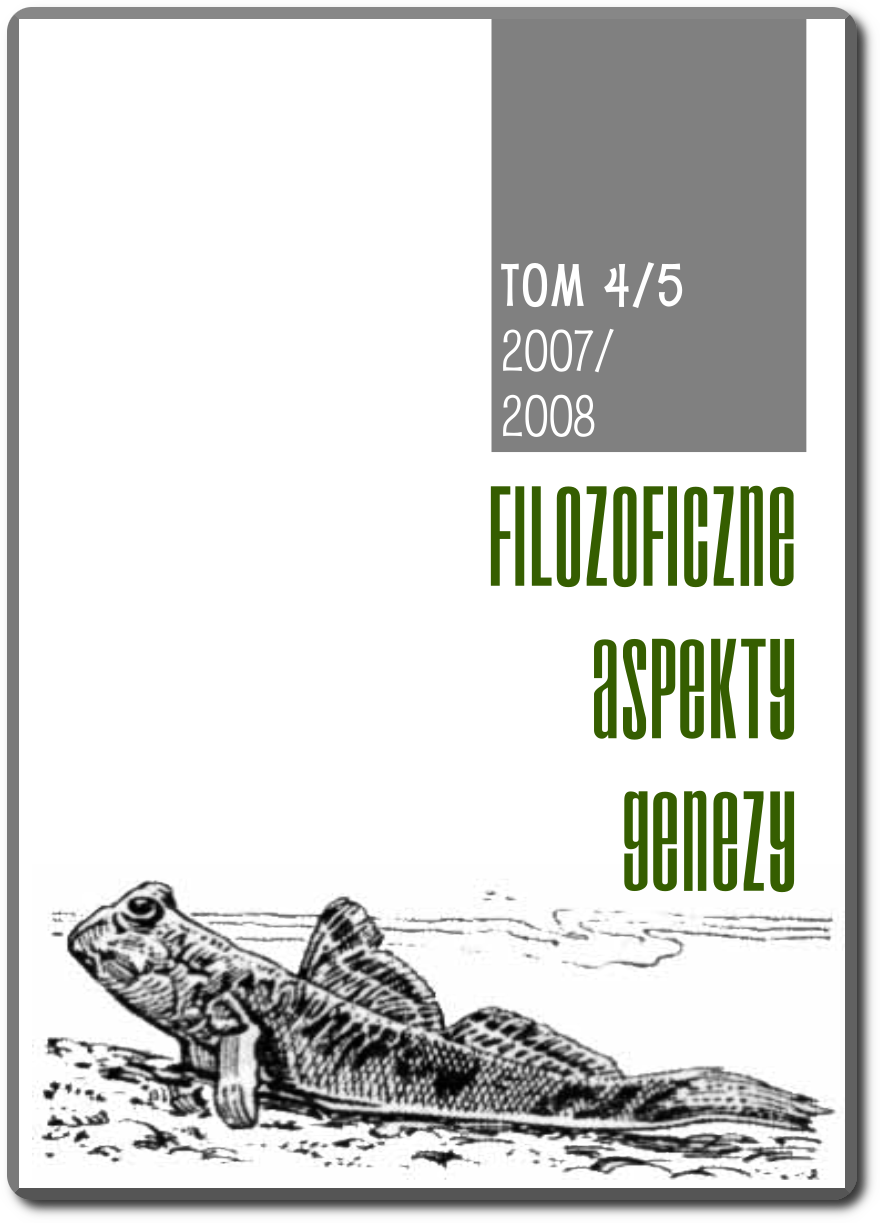Opublikowane 21.05.2021
Słowa kluczowe
- filtr eksplanacyjny,
- szansa,
- prawdopodobieństwo,
- przypadek,
- regularność
- specyfikacja ...More

Utwór dostępny jest na licencji Creative Commons Uznanie autorstwa 4.0 Międzynarodowe.
Jak cytować
Abstrakt
Artykuł stanowi analizę krytyczną koncepcji filtra eksplanacyjnego, zaprezentowanej przez Williama Dembskiego w książce The Design Inference. Filtr jest rozumiany jako formalizacja procedury prowadzącej do wykrycia, czy dane zdarzenie jest zaprojektowane poprzez zastosowanie reguł rządzących wyborem wzajemnie się wykluczających hipotez: regularności, przypadku i projektu. Autorzy odnoszą się do pojęcia szansy hipotezy rozumianej jako prawdopodobieństwo, jakie ta hipoteza nadaje zdarzeniom ,i argumentują, że w odróżnieniu od hipotez przypadku i regularności, szansa hipotezy projektu nigdy nie jest brana przez Dembskiego pod uwagę. Autorzy krytykują również klasyfikację wymienionych hipotez zaproponowaną w The Design Inference.
Downloads
Bibliografia
- Pennock Robert T. (ed.), Intelligent Design Creationism and Its Critics: Philosophical, Theological, and Scientific Perspectives, The MIT Press, Cambridge, Massachusetts – A Breadford Book, London, England 2001.
- Sober Elliott, Philosophy of Biology, Westview Press, Boulder, CO 1993.
- Dembski William A., „Intelligent Design as a Theory of Information”, 1998, http://www.arn.org/docs/dembski/wd_idtheory.htm (27.06.2008).
- Dretske Fred, Knowledge and the Flow of Information, MIT Press, Cambridge, MA 1981.
- Sober Elliott, „Physicalism from a Probabilistic Point of View”, Philosophical Studies 1999, vol. 95, s. 135-174.
- Sober Elliott, „Morgan’s Canon”, w: C. Allen and D. Cummins (eds.), The Evolution of Mind, Oxford University Press, Oxford 1998, s. 224-242.
- Behe Michael J., Czarna skrzynka Darwina. Biochemiczne wyzwanie dla ewolucjonizmu, przeł. Dariusz Sagan, Biblioteka Filozoficznych Aspektów Genezy, t. 4,Wydawnictwo MEGAS, Warszawa 2008.
- Plantiga Alvin, Warrant and Proper Function, Oxford: Oxford University Press, Oxford 1993.
- Plantiga Alvin, „Naturalism Defeated”, nieopublikowana rozprawa 1994.
- Stafford Tim, „The Making of a Revolution”, Christianity Today, 8 December 1997, s. 16-22.
- Royall Richard, Statistical Evidence – A Likelihood Paradigm, Chapman and Hall, London 1997.
- Fitelson Branden and Sober Elliott, „Plantinga’s Probability Arguments Against Evolutionary Naturalism”, Pacific Philosophical Quarterly 1998, vol. 79, s. 115-129.
- Sober Elliott, „Testability”, Proceedings and Addresses of the American Philosophical Association 1999, vol. 73, s. 47-76.
- Kitcher Philip, Abusing Science – The Case against Creationism, MIT Press, Cambridge, MA 1984.
- Pennock Robert T., Tower of Babel: The Evidence against New Creationism, MIT Press, Cambridge, MA 1999.



